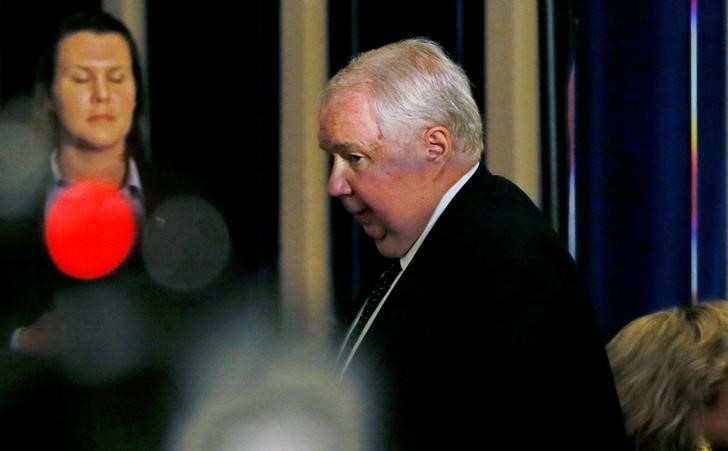WASHINGTON (Reuters) - Russia's ambassador to Washington was overheard by U.S. spy agencies telling his bosses that he had discussed campaign-related matters, including issues important to Moscow, with Jeff Sessions during the 2016 presidential race, the Washington Post reported on Friday, citing current and former U.S. officials.
A U.S. official confirmed to Reuters that Ambassador Sergei Kislyak's accounts of two conversations with Sessions, then a U.S. senator and key foreign policy adviser to Republican candidate Donald Trump, were intercepted by U.S. intelligence agencies.
The official, who spoke on condition of anonymity, said there was nothing automatically inappropriate about Sessions, then a U.S. senator as well as a Trump supporter, discussing policy matters or even Trump's thinking about them with a foreign diplomat.
"The question is whether he crossed the line and discussed classified information or talked about deals like lifting sanctions if the Russians were interested in investing in the U.S. or had dirt on Secretary Clinton," said a second official familiar with the intercepts, who also spoke on the condition of anonymity. "His memory is another matter."
Sessions at first failed to disclose his contacts with Kislyak and then said the meetings were not about the Trump campaign.
As Attorney General, he recused himself in March from matters connected to an investigation by the Federal Bureau of Investigation into Russian meddling in the 2016 election and any connections to the Trump campaign following his admission that he had talked to the Russian envoy.
Sessions has denied discussing campaign issues with Russian officials and has said that he only met Kislyak in his role of U.S. senator.
The Post cited one U.S. official as saying that Sessions provided “misleading” statements that are “contradicted by other evidence.”
The newspaper reported that a former official said that the intelligence indicates that Sessions and Kislyak had “substantive” discussions on matters including Trump’s positions on Russia-related issues and prospects for U.S.-Russia relations in a Trump administration.
The Washington Post cited a Justice Department spokeswoman, Sarah Isgur Flores, as saying: “Obviously I cannot comment on the reliability of what anonymous sources describe in a wholly uncorroborated intelligence intercept that the Washington Post has not seen and that has not been provided to me.”
The Post said that Sessions did not discuss interference in the election.

Trump said in a New York Times interview on Wednesday that he was disappointed by Sessions' move to recuse himself, but a White House spokeswoman said on Thursday that the president still had confidence in Sessions "or he would not be the attorney general."